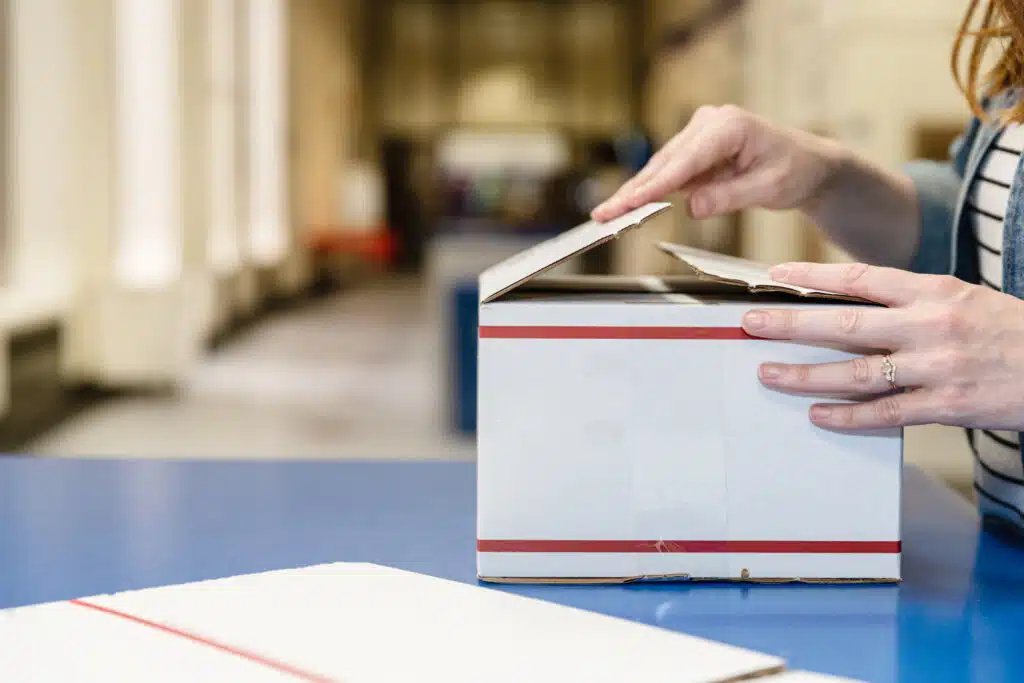As the world continues to shift towards online shopping, Direct-to-Consumer (D2C) companies are at the forefront of this change. 2024 is shaping up to be an exciting year for those companies, with new trends emerging and old ones evolving.
The D2C industry has grown significantly in recent years, and it continues to evolve. With the advent of new technologies, shifting consumer behavior, and the ongoing pandemic, they have had to adapt and innovate. As we head into 2024, businesses must stay ahead of the curve by being aware of the latest trends.


What is a D2C company?
D2C companies are businesses that sell products or services directly to consumers, bypassing traditional brick-and-mortar retail stores or intermediaries such as wholesalers or distributors. This can include online marketplaces, e-commerce websites, and social media platforms. D2C companies often have a solid online presence and use digital marketing techniques to reach and engage with customers.
The popularization of D2C brands in Europe
One reason is that the European e-commerce market has multiplied in recent years, with more and more consumers turning to online shopping. This has created an opportunity for D2C brands to reach a large audience and sell their products directly to consumers without the need for intermediaries.
Another reason is that they often offer unique, high-quality products at competitive prices. They can do this by cutting out the middlemen and controlling the entire supply chain, from product development to delivery.
Additionally, they often have a solid online presence and use digital marketing techniques to reach and engage with customers. This allows them to build a loyal customer base and create a strong brand identity.
Finally, those brands can access consumer data, allowing them to personalize their offerings and create a better customer experience.


5 D2C trends to watch for
Personalization
The use of data and technology to personalize their products and marketing efforts to target better and serve individual customers. They collect data on customer preferences and behaviors, use data analytics to identify trends and use personalization tools such as machine learning and AI to create a more individualized experience for each customer. This allows them to develop new products that meet customer needs, create customized marketing campaigns, and improve the overall customer experience.
Subscription models
They are increasingly using subscription-based models to generate recurring revenue and build customer loyalty. Subscription models such as monthly boxes or replenishable product subscriptions provide a stable source of income, helping D2C companies retain loyal customers and increase the lifetime value of each customer.
Sustainability as a key decision factor
The shift of the power entirely to the consumer’s hands, added to the wide range of brands in saturated markets offering the same services for competitive prices, has allowed people to choose who they are buying from and if the values of that brand align with their beliefs. With climate change and sustainability being such buzz topics in the last few years, consumers and especially Gen-Zs, have taken sustainability as a key decision factor when it comes to shopping.
There are really no more excuses for brands not to be – or at least try to be – as sustainable as possible, especially for smaller D2C brands that communicate directly with the consumers. The choice for sustainability can also be a differentiating and competitive advantage for smaller brands, as sustainability might have more weight in the decision-making than name brands.
Livestream shopping will continue to be popular.
With social media and the internet at the palm of our hands, product reviews and shopping hauls that before belonged in extensively written articles in blogs that took hours to read and compare now take the shape of videos, short or long, that include all the information about the product in much more detail than before.
The videos and live streams that started on YouTube and now have migrated to other platforms, such as TikTok or Instagram, are much more attention-catching for the audience and much more descriptive of the quality of the product, including try-ons, durability testing, and comparison with similar products.
These reviews can be done spontaneously or paid from brands. Still, it’s important to remember that picking the right influencer and doing research about the platform and the kind of content you expect to be produced is just as essential as any other type of advertising.
By working with influencers, D2C companies can increase their brand visibility and reach potential customers who may be more likely to trust the recommendation of someone they follow online.
Supply chain resilience
Supply chain resilience is the ability of a business to anticipate, prepare for, and respond to disruptions in the supply chain. It is a crucial aspect of any business, especially in today’s uncertain and rapidly changing global environment.
It’s no surprise that the covid-19 pandemic took a hit on the brands, especially D2C brands, and it took some time for everyone to get used multiple changes that came with it. The power shifted entirely to the consumer’s hands, allowing them to make comparisons between competitors, creating the expectation to receive all the items at home in no time with the possibility to return everything that didn’t work out at no additional cost.
Brands had to adapt to the flood of online orders that replaced most physical stores, and many stores experienced delays with deliveries, not to mention that consumers got much less forgiving of the mistakes in the service and would instead not buy from a shop if the online shopping experience was terrible.
To survive the changes in the market, brands must learn to be resilient and learn from their mistakes in the past. A big part of learning from mistakes is giving space to consumers to give feedback, and encouraging consumers to share their opinions through reward systems, for example, might be an excellent way to get more honest and helpful reviews.


Create your product line with Wonnda – the European platform for white-label, private-label, and contract manufacturing
Wonnda is the perfect platform for D2C companies looking to create their European product line. We understand the challenges that D2C companies face in production, and we have a solution for you. Our platform offers white-label, private-label, and contract manufacturing options, allowing you to choose the option that best suits your business needs.
With our partnerships with leading European manufacturers, we can connect you with reliable and experienced producers who can help bring your product ideas to life. Whether you’re looking to create a new product line or want to expand your existing range, our team can assist you in finding the right production partner for your project.
We understand that finding the right production partner is crucial for the success of your business, which is why we make it easy for you. Provide us with information about your project or product idea, and we’ll connect you with the most appropriate producers. We take care of the whole process for you, from finding the right manufacturer to overseeing the production process.
If you want to take your D2C business to the next level, Wonnda is here to help. Contact us today to learn more about how we can assist you in creating your product line in Europe.